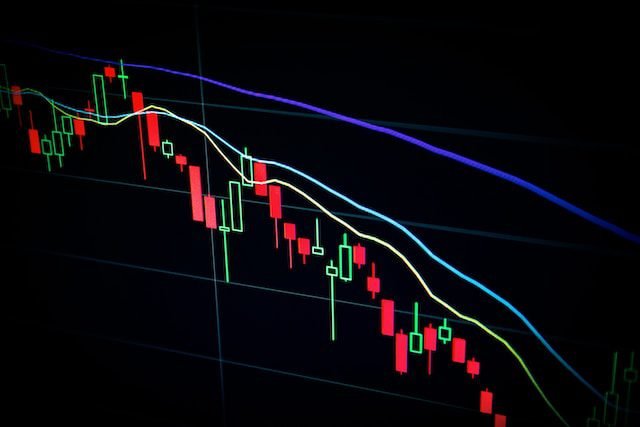After a turbulent week overshadowed by a developing banking crisis and the looming storm clouds of a potential recession, Wall Street finished lower on Friday.
Financial stocks experienced the worst decline among the S&P 500’s major sectors, as all three indices closed the session in negative territory.
The Nasdaq and the Dow saw weekly dips, while the benchmark S&P 500 closed the week stronger than it did last Friday.
The latest twist in an ongoing drama that started last week with the failure of Silicon Valley Bank and Signature Bank, which generated concerns of contagion throughout the whole global financial system, was the announcement by SVB Financial Group that it will seek Chapter 11 bankruptcy protection.
Oliver Pursche, senior vice president of Wealthspire Advisors in New York, claimed that the sell-off was somewhat overdone. Nonetheless, some of the worries about general liquidity and a future liquidity shortage are justified.
These issues have already reached Europe, where Credit Suisse shares have fallen due to liquidity concerns, forcing regulators to rush to calm the markets.
This has much more to do with the real effects of interest rate hikes on capital and balance sheets, according to Pursche, than just a run on SVB or First Republic. And you’re seeing that have an impact on significant institutions like Credit Suisse, which has people alarmed.
The S&P Banking index and the KBW Regional Banking index both experienced their biggest two-week declines since March 2020 over the past two weeks, falling 4.6% and 5.4%, respectively.
Following the bank’s announcement that it was suspending its dividend, First Republic Bank fell 32.8%, reversing Thursday’s rally that was prompted by an unprecedented $30 billion rescue package from major financial institutions.
PacWest Bancorp and Western Alliance, First Republic’s rivals, also had declines of 19.0% and 15.1%, respectively.
Credit Suisse shares trading on U.S. exchanges likewise ended the day considerably lower, down 6.9%.
The two-day monetary policy meeting of the Federal Reserve is now in the investors’ sights.
Investors have revised their forecasts for the magnitude and duration of the Fed’s restraining interest rate hikes in light of recent changes in the banking industry and data pointing to a slowing economy.
Pursche claimed that the “little financial crisis” had expedited the economy’s slowing timeframe and raised the likelihood of a recession. “The Fed should naturally reevaluate its strategy, but it’s still very evident that even though inflation is falling it’s still a concern and needs to be kept under control,” says the author.
According to CME’s FedWatch tool, at last glance, financial markets are pricing in a 60.5% chance that the central bank will increase its key target rate by 25 basis points and a 39.5% chance that it will maintain the present rate.
The S&P 500 lost 43.64 points, or 1.10%, to 3,916.64, the Nasdaq Composite dropped 86.76 points, or 0.74%, to 11,630.51, and the Dow Jones Industrial Average sank 384.57 points, or 1.19%, to 31,861.98.
The S&P 500’s 11 major sectors all finished the session in the red.
FedEx Inc. gained 8.0% after raising its outlook for the current fiscal year, which was positive.
On the NYSE, declining issues outnumbered rising ones by a ratio of 4.07 to 1; on the Nasdaq, the ratio was 2.94 to 1.
The Nasdaq Composite registered 29 new highs and 320 new lows, while the S&P 500 posted 5 new 52-week highs and 20 new lows.
Compared to the 12.49 billion average for the previous 20 trading days, 19.41 billion shares were traded on U.S. exchanges.
This article has been directly published from a wire service feed without any text changes.





